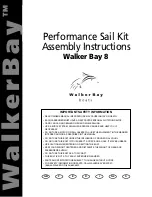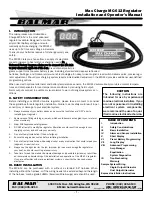
User Manual SMO1000A-S
58/176
To Trigger the Oscilloscope
For trigger, you set certain trigger condition according to the requirement and when a
waveform in the waveform stream meets this condition, the oscilloscope captures this
waveform as well as the neighboring part and displays them on the screen. For digital
oscilloscope, it displays waveform continuously no matter whether it is stably triggered,
but only stable trigger can ensures stable display. The trigger circuit ensures that every
time base sweep or acquisition starts from the input signal and the user-defined trigger
condition, namely every sweep is synchronous to the acquisition and the waveforms
acquired overlap to display stable waveform.
The following is the schematic diagram of the acquisition memory. As shown in the figure
below, the position of the trigger event is determined by the reference time point and the
delay setting.
Trigger setting should be based on the features of the input signal, thus you need to have
some knowledge of the signal under test to quickly capture the desired waveform.
The oscilloscope provides abundant advanced trigger functions which can help you to
focus on the desired waveform details. These trigger types are edge, slope, pulse, video,
window, interval, dropout, runt, pattern and serial trigger. This chapter will mainly introduce
all these trigger functions which mentioned above in details and tell you how to set the
trigger conditions to capture desired waveform.
Содержание SMO1000A-S
Страница 1: ...Digital Oscilloscope SMO1000A S User Manual ...
Страница 50: ...User Manual SMO1000A S 50 176 Figure 12 x Interpolation Figure 13 Sinx Interpolation ...
Страница 76: ...User Manual SMO1000A S 76 176 Figure 28 Relative Window Trigger ...
Страница 78: ...User Manual SMO1000A S 78 176 Figure 29 Interval Trigger ...
Страница 82: ...User Manual SMO1000A S 82 176 Figure 32 Runt Trigger ...
Страница 96: ...User Manual SMO1000A S 96 176 Figure 44 SPI Trigger ...
















































